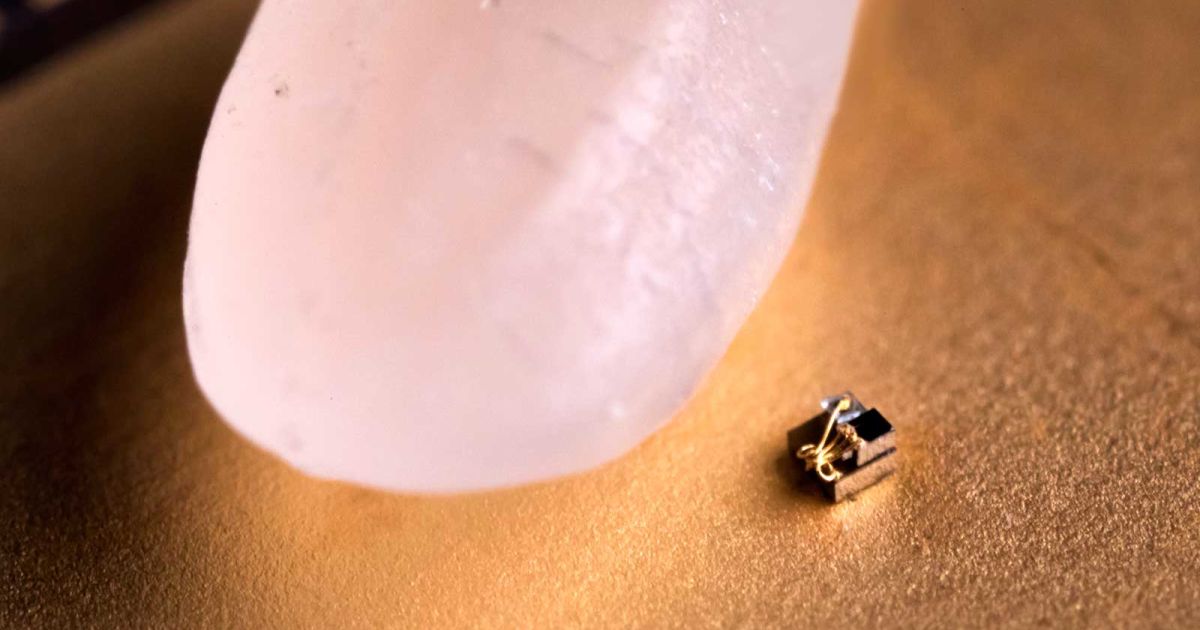You didn’t think scientists would let IBM’s “world’s smallest computer” boast go unchallenged, did you? Sure enough, University of Michigan has produced a temperature sensing ‘computer’ measuring 0.04 cubic millimeters, or about a tenth the size of IBM’s former record-setter. It’s so small that one grain of rice seems gigantic in comparison — and it’s so sensitive that its transmission LED could instigate currents in its circuits.
The size limitations forced researchers to get creative to reduce the effect of light. They switched from diodes to switched capacitors, and had to fight the relative increase in electrical noise that comes from running on a device that uses so little power.
The result is a sensor that can measure changes in extremely small regions, like a group of cells in your body. Scientists have suspected that tumors are slightly hotter than healthy tissue, but it’s been difficult to verify this until now. The minuscule device could both check this claim and, if it proves true, gauge the effectiveness of cancer treatments. The team also envisions this helping to diagnose glaucoma from inside the eye, monitor biochemical processes and even study tiny snails.
